![Believing in Demons makes us Demonic (Karl Barth's Demonology) [1]](https://postbarthian.com/wp-content/uploads/2016/03/KarlBarthDemonology-1.png) We do not believe in demons or deny their existence,
We do not believe in demons or deny their existence,
but we must resolutely disbelieve in demons.
Demons! Those fiery red devils that possess everyone. What is to be made of these evil spirits? Are they in every nook and cranny? Or has the Enlightenment evicted them from the world? Karl Barth's dialectical answer is that "we cannot believe in demons", yet this "cannot consist in questioning their existence." This twofold 'yes and no' answer may cause some to call an exorcist. The either/or of either believing in demons or denying their existence is a lose-lose outcome. When we believe in demons, Barth says, there "is the imminent danger that in so doing we ourselves might become just a little or more than a little demonic" because belief in the Devil and demons is what causes "witch-hunts" to happen (literally and figuratively). Barth says "even today we have no reason to boast that 'we have looked in the face of demons.'" When one believes in demons, one "gazes at the poisonous serpent instead of striking it." Yet denying the existence of demons also empowers them because, "if we ignore demons, they deceive us by concealing their power until we are against constrained to respect and fear them as powers." The correct response to the question of demons is "opposing to them in faith that resolute disbelief." Barth's answer is therefore that we do not believe in demons or deny their existence, but that we disbelieve in demons!
Barth says that the Devil and demons are not fallen angels and "it cannot be said that a real demon has ever been in heaven. . . . the devil was never an angel. He was a murder 'from the beginning.'" Barth says that demons are not in the same "sphere with that of angels", they are related in sharp distinction like that of "as creation and chaos, . . . as kerygma and myth" and that the Devil and demons are not creatures but they exist in the same way as "nothingness" exists as a "negative reflection of biblical Christology and soteriology." We must not fall into a stupid dualism that says if there is a God, Angels and Heaven there must also be a Devil, demons and Hell. And, if there is any relationship, says Barth, it by 'negation'. Barth says demons are not angelic powers but they "are powers indeed, and yet they are only the powers of falsehood. Hence we must not regard them as real powers, or the mimicry with which they make fools of us as reality." Barth says that it is the power of the gospel (not the Enlightenment) that has "liberated" us from demons by "exorcising" them from the world.Barth's Demonology is printed as a virtual appendix to Barth's Angelology consisting of about ten pages at the very end of The Church Dogmatics III/3: The Doctrine of Creation in section "§51 The Kingdom of Heaven, The Ambassadors of God and Their Opponents." This large section 51 on Angelology comes on the heals of Barth's section "§50 God and Nothingness" and it is from the coffer of Barth's doctrine of Nothingness that his conception of the Devil and demons springs! Demons and Nothingness go hand in hand for Barth. However, the brevity of Barth's demonology suggest that his demonology is incomplete, and the rushed conclusion with its loose ends indicate that Barth's demonology is ultimately incomplete and lacking.
Thirteen Barthianisms on Demonology
1. Believing in Demons makes us Demonic
When a person becomes consumed by his or her enemy, they become a twisted disciple of their nemesis. Barth keenly observes that those who are obsesses with demons, turn into a little demon themselves! Many great theologians, and most notably the great Martin Luther have been guilty of personifying adversaries into demons, or compressed all opposition and opponents into a unified 'Adversary' in the Devil. (There's a famous legend that Martin Luther once threw an inkwell at the Devil, and if you visit the Wartburg Castle today, you'll be able to see the 'very' stain where the inkwell struck the wall.)2. Demon belief starts Witch-hunts:"It has never been good for anyone—including (and particularly) Martin Luther—to look too frequently or lengthily or seriously or systematically at demons (who for Luther were usually compressed into the single figure of the Devil.) It does not make the slightest impression on the demons if we do so, and there is the imminent danger that in so doing we ourselves might become just a little or more than a little demonic." [2]
The best example of how believing in demons makes us demonic are witch-hunts. Those very people who wish to depose the demons, become demons in the act of deposing demons!
"the doctrine of the Devil and demons became an integral part of the Christian message, and in many cases the part in which Christian preacher and theologians believed they should display their zeal and realism. The result was that all Christianity, even when there were no witch-hunts and the like, acquired a more or less pervasive odour of demonism, becoming something which from this dark chamber seemed to spread abroad, and did actually spread abroad, menace, anxiety, melancholy, oppression, or tragic excitement. And this had the consequence that when in the light of witch-hunts a protest was made against this chamber." [3]
3. Affirming Demons is Denying All Theology:
I often say that "fundamentalism begets atheism", and this is true of believing in demons as well. Barth says that when Christians became infatuated with the Devil and demons, it caused an unintended reaction, like what happened with the Enlightenment, that rejected all spirits (good or bad) and then entirely abandoned theology and belief in Christianity. Believing in demonology therefore causes others to not believe in Christianity!
4. Angels and Demons are like Kerygma and Myth"And the further consequence [of believing in demons] has been that [. . .] angelology, Christology and Christian theology generally form a whole with a particular demonology, and that this whole has either to be accepted, rejected, or, in the process of a general demythologisation int he name of the modern outlook, reduced to a definite anthropology. It was fatal that at the time of the Enlightenment the way was entered which led from a criticism of demonology to a contesting of theology generally. But it was even more fatal that orthodoxy gave good cause for following this path. " [4]
Angels and demons have been dualistically paired together since ancient times, but these two spirits are not the same species. Barth firmly believes in angels, and all Christians must affirm the existence of angels, yet denies real being to demons. Angels are like things that exist and demons are like non-existence. We may not deny nothing or chaos. Nothingness is the ground of Barth's Demonology. Whatever nothingness may be, then that is what Demons are as well.
"Angels and demons are related as creation and chaos, as the free grace of God and nothingness, as good and evil, as life and death, . . . , as kerygma and myth. Perhaps the last analysis is best adapted to bring out the matter most sharply". [5]
5. Angels and Demons are not the same species
Likewise, Barth considers it an error to group angels and demons together as the same sort of creature. Demons are a negation of angels, and if there is such a thing as demons, then they exist only as a negation or negative reflection on angelic being, that lack any subsistence of their own.
"We can see at once the similarity of this sphere with that of angels, with the kingdom of God, the kingdom of heaven. We can see the reason for the misunderstanding in which it could be thought necessary not merely to contrast but to co-ordinate the two kingdoms, regarding demons not merely as opponents but as relatives and colleagues of angels. . . . Yet this is the very thing which we must never say, but resolutely oppose, in relations to these two kingdoms" [6]
6. Origin of Demons is from God's No to nothingness:
Where did the Devil come from? Barth says the Devil and demons are not created nor creatures, but instead have sprung from Nothingness (for Barth's doctrine of Nothingness, see "§50 God and Nothingness" that precedes his Angelology.) The existence of Nothingness is an enigma, and it is not part of God's good creation, but it only exists as a negation of creation. Nothingness, along with the Devil and demons, came into existence as a negative result of God's act of creating his good creation. So Barth evades all dualism, that posits an eternal part of God and the Devil, and angel and demons. On the other hand, he also evades monism by saying God has not created the Devil or demons, but they are a mysterious result of his good creation. Most theologians fall on this double edged sword, including John Calvin, who believed that the Devil was necessarily created for God's service. Barth explains the origin of the Devil and demons as such:
"What is the origin and nature of the Devil and demons? The only possible answer is that their origin and nature lie in nothingness. . . . In biblical terms we can also describe it as chaos, or darkness, or evil (to the extent that this signifies a power rather than a place) Hades. . . As we cannot deny the peculiar existence of nothingness, we cannot deny their existence. They are null and void, but they are not nothing. . . . Their being is neither that of God nor that of the creature, neither that of heavenly creatures nor that of earthly, for they are neither the one nor the other. They are not divine, but non-divine and anti-divine. . . . God has not created them, and therefore they are not creaturely. They are only as God affirms Himself and the creature and thus pronounces a necessary No. . . . This is all to be said of demons as of nothingness. They are not different from the later. They do not stand apart. They derive from it. They themselves are always nothingness." [7]
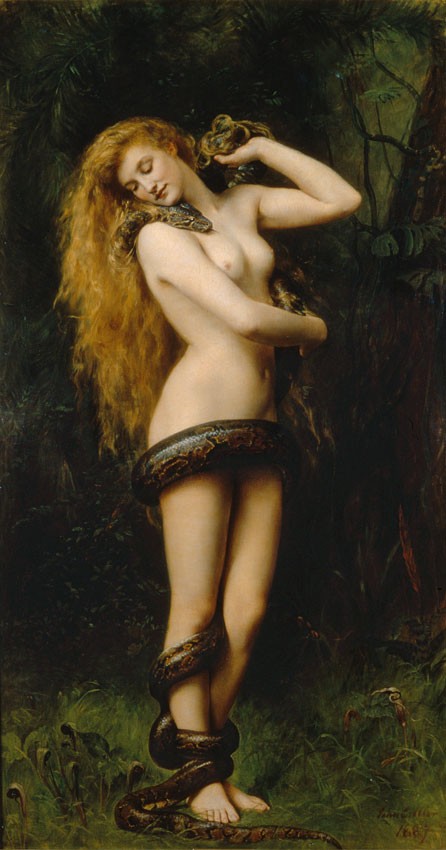
Lilith is a night demon referenced in Isaiah 34:14, was according to legend, Adam's first wife. [20]
Barth does not deny the existence of demons throughout the Old and New Testament. He believes that the references to demons are a "negative reflection on biblical Christology and soteriology". Demons arguably do not appear in the Old Testament and the closest parallel is a goat idol (cf. Deut 32:17; Ps 106:37), and in the New Testament, the Devil and demons are frequent characters in the narrative. Barth believes that the existence of devils and demons in the bible means that they are a subject of belief, or that their existence should be denied, but they are relics of a world that has been exorcised by the gospel. The Gospel has defeated all opposition, and this means that any so-called Kingdom of Satan, to remind us the power of the gospel. Much like the powerful words of Gandolf, in The Lord of the Rings, "Until at last, I threw down my enemy and smote his ruin upon the mountainside."
An excellent example of this is the reference to Lilith in Isaiah 34:14. This demon, sometimes translated as a screech owl, is Adam's first wife. An evil female monster of the night that awaits children and tears men apart (cf. other OT demons such as Rahab, Behemoth, Leviathan, etc). These biblical monsters are vanquished foes like Balrog of Moria. We do not believe in these monstrous creatures, or deny their existence, but we disbelieve in them in the proclamation of the gospel!
"This, then, is what Holy Scripture has to tell us concerning demons. It certainly does not say that they do not exist or have no power or do not constitute this threat. It is quite evident that their existence and nature are very definitely taken into account, and it is surprising that this is more expressly the case in the New Testament than the Old. . . . What might be called biblical demonology is in fact only a negative reflection of biblical Christology and soteriology. What is revealed is the kingdom of Satan and his angels as this is already assaulted and mortally threatened, and indeed radically destroyed; demonic being, not in its concealment and therefore powerful, but unmasked and therefore disarmed; not its march and attack and even victory, but its defeat and withdrawal and flight; not an earth and humanity controlled, visited and plagued by demons, but liberated from them; not a world bewitched but exorcised; not a community and Christendom believing in demons but opposing to them in faith that resolute disbelief; in short, the triumph of truth over falsehood." [8]
8. Fallen Angels? Nein!
Are demons fallen angels? Barth says hell no! On the last page of CD III/3, Barth give us a small print section on the question of fallen angels. The 42% of my followers, in a recent poll, said they believed demons were fallen angels, and I suspect these followers will be disappointed with Barth's rushed exegesis of the 'demons are fallen angel' proof-texts. The fascinating point is that Barth says that to think that angels are fallen angels, makes everything we know about angels and demons from the bible unintelligible. Barth expresses this when he says: "And literally all the insights which we have gained concerning the being and ministry of angels, and developed at least concerning the character and activity of demons, are necessarily false if this doctrine is correct." When faced by a verse that prima facie proves that demons are fallen angels, this interpretation must be set asides or left with a question mark, despite how convincing it is in context (and this will make all biblicists shiver).
There are many biblical references that are absent from this hasty summary of the biblical texts. It's as if Barth was uninterested in discussing the topic, and this makes sense because of what Barth has repeatedly said earlier about the grave danger of giving too much attention to demons, because it consequently empowers them. Barth addresses some key verses, and his conclusion of the rest is derivative.
The key proof-text for the Devil being a fallen angel is Isaiah 14:12, and even John Calvin agrees with Karl Barth, that this verse does not refer to the Devil's fall from heaven whatsoever. Calvin says in his commentary on Isaiah 14:12: "The exposition of this passage, which some have given, as if it referred to Satan, has arisen from ignorance; for the context plainly shows that these statements must be understood in reference to the king of the Babylonians."
We refer to the view constantly held in ancient and modern times that the demons are 'fallen angels.' At an earlier date this was linked with the saying in Is 14:12 which describes the king of Babylon as the radiant star of the morning (lucifer) cast down from heaven. The remarkable passage in Gen 6:1-14 was related to this verse. Most strongly of all Jude 6 seemed and seems to point in this direction with its mention of angels which did not keep their 'position of authority' (arche) and lost their 'their own habitation' (idion oikatarion). We might also refer to 2 Pet 2:4 with its reference to angels who sinned. But these texts are so uncertain and obscure that it is inadvisable to allow them to push us in this direction. However they may have been expounded, against their exposition along these lines there has to be set the intolerable artificiality with which attempts have been made to use them as a basis for the development of the doctrine of a fall of angels and therefore of an explanation of the existence of the devil and demons. And literally all the insights which we have gained concerning the being and ministry of angels, and developed at least concerning the character and activity of demons, are necessarily false if this doctrine is correct. It is, in fact, one of the bad dreams of the older dogmatics. . . . And on the other hand it cannot be said that a real demon has ever been in heaven. The demons merely act as if they came from heaven. But the devil was never an angel. He was a murder 'from the beginning' (ap arches). He never stood in the truth. No truth was ever in him. He speaks falsehood, and he does so 'of his own' (ek ton idion), because he is a liar and the father of lies. This is how he is described in Jn 8:44, and it agrees with everything else that we are told in the New Testament concerning him and demons. But of angels we must say with Jas 1:17: "Every good gift and every perfect gift is from above, and cometh down from the Father of lights, with whom is no variableness, neither shadow of turning." And reference may also be made to the preceding verse (v. 16): "Do not err, my beloved brethren." [9]
9. Demons are Mimics of Angels:
Barth's dialectical disbelief in demons at times contains belief in demons and at times denial of their existence. If they exist, they are the ominous Kraken's tentacles of the deep and there power stems from powerlessness. Yet, any power the Devil or demons have, is only a dark reflection of the true power of God and his angels. The Devil and demons are apes of God and his Angels. When confronted by these mimics of God and his angels, we must respond in disbelief and say No to this negation.
"We cannot deny but must soberly recognise that in all these things the demons are constantly present and active like the tentacles of an octopus. Fortunately the angels are also present and active. But there can be no doubt that the demons are there too, beings which betray their nature by this fatal 'too'.
Yet it is as well not to consider this without recognising that they are only the powers of falsehood. As falsehood they are really powerful. Indeed, because they are so thorough, because they imitate no less than God and His kingdom and angels, because nothingness always masquerades as the highest and deepest, the first and the last, they are always much more powerful than we expect or concede, and can always turn our defenses or cut off our escape, seizing us at the very point from which we try to resist them or where we try to find refuge from them. They are powers indeed, and yet they are only the powers of falsehood. Hence we must not regard them as real powers, or the mimicry with which they make fools of us as reality." [10]
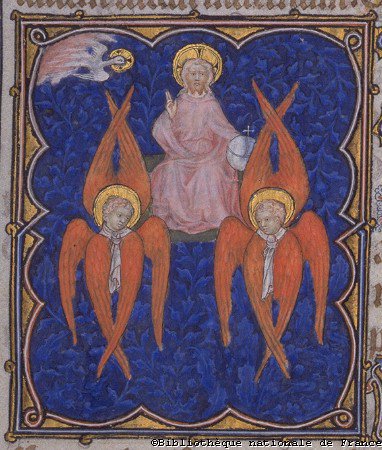
The Seraphim are often believed to be the highest order of angels, and they are depicted as fiery serpents.[22]
Barth describes demons as a myth to be demythologized. A similar comparison is how the creeds say we believe in the life everlasting but they do not say that we believe in hell. Belief has a positive orientation, Barth says, such that when we believe in God and Angels, then we disbelieve in the Devil and demons. Barth also describes this as believing in the truth such that we don't believe the corresponding lie.
11. Admire the poisonous serpent instead of striking it:"We cannot believe in the devil and demons as we may believe in angels when we believe in God. We have a positive relationship to that in which we believe. But there is no positive relationship to the devil and demons. We cannot ignore them. . . . They are the myth, the myth of all mythologies. Faith in God and His angels involves demythologisation in respect of the devil and demons; but not in the superficial phenomenological sense current to-day . . . The demythologisation which will really hurt them as required cannot consist in questioning their existence. Theological exorcism must be an act of unbelief which is grounded in faith. It must be in a resolute denial that they belong to this exalted company. It must consist in the fact that in the light, . . . they are seen to be a myth, the myth which lurks in all myths, the lie which is the basis of all other lies, so that a positive relationship between them, an attitude of respect and reverence and obedience, is quite impossible" [11]
In South Appalachia, deadly snakes are handled in churches inspired by Mark 16:18 (KJV) "They shall take up serpents; and if they drink any deadly thing, it shall not hurt them; they shall lay hands on the sick, and they shall recover." In 2014-15, two Holiness pastors in Kentucky died from snake bites after refusing medical treatment. Maybe they died believing that this apocryphal verse was the Word of God, or possibly because they, as Barth said, "gaze[d] at the poisonous serpent, instead of striking it." I don't understand this serpentine phenomena, but Barth is right that we place ourselves in grave danger, when we marvel at the power of demons.
"There has always flourished in Christianity and its theology a supposedly very realistic demonology which has suffered from this lack of a safeguard. It begins with respect instead of aversion, with reverence instead of scorn. It gazes at the poisonous serpent instead of striking it. It moves from the very outset in the secret respect and admiration, or at least in an atmosphere of curiosity, where distaste is the only possible attitude." [12]
12. Denying Demons Exist is a Grave Danger too
Simply denying demons exist, according to Barth, is as great an error as believing in them. It is allowing a problem to remain, instead of facing it. So, ignoring demons is as dangerous as believing in demons.
"There is alternation in this matter. If we ignore demons, they deceive us by concealing their power until we are against constrained to respect and fear them as powers. If we absolutise them, respecting and fearing them as true powers, they have deceived us by concealing their character as falsehood, and it will be only a little while before we try to ignore and are thus deceived by them again." [13]
13. Demons and Science: Medicine, Psychology, Philosophy
The Usual Suspects (1995) contained a famous line: "The greatest trick the Devil ever pulled was convincing the world he didn't exist." Barth agrees in so far that Nothingness rejoices that its not noticed, and the Devil and demons are born from Nothingness. However, Barth is not saying that 'demon possession' is a valid medical or psychiatric diagnosis. In scientific terms, Barth's disbelief in demons means that we are constantly demythologizing demons, and removing their power from all the sciences, and this is especially true of medicine and psychology. By the power of the gospel, we may say 'No' to any diagnosis of demon possession, and not allow it the possibility of existence, commanding it into the nothing from which it sprang. And this allows us to say 'Yes' to modern medicine, psychology, politics, philosophy, or any other domain where demons were once believed to have power."Nothingness rejoices when it notices it is not noticed, that it is boldly demythologised, that humanity thinks it can tackle its lesser and greater problems with a little morality and medicine and psychology and aesthetics, with progressive politics or occasionally a philosophy of unprecedented novelty—if only its own reality as nothingness remains beautifully undisclosed and intact." [14]
"there is always scope for a new cycle of Enlightenment and demythologisation, for morality, medicine, psychology, aesthetics, politics, philosophy or even piety and religion to take the stage as the true liberators, and for a reassertion of the undisclosed and intact dominion of negated nothingness." [15]
Conclusion
Karl Barth says we must not believe in the Devil and demons, nor ignore their existence, but we must resolutely disbelieve in them. I agree with this dialectical approach, and find it more satisfying than believing in demons or denying their existence. Yet, Apophatic Theology says that as soon as we 'disbelieve in demons' we have 'believed in demons' via negation. So Barth's Demonology is a mode of belief in demons, and that mode is isolated in 'disbelief' alone, and does not allow any other form of belief in demons, and this is challenging because it may not be rationalized. Yet, all the greatest truths of Christianity may not be rationalized either: Trinity, Christology, etc.
My personal opinion is that the Devil and demons are a personification of evil in the world, and that it is appropriate to refer to the Devil and demons, because there are real events of evil and evil forces in action in the world but this does not mean that there are specific embodiment of evil spirits roaming the earth such as the iconic red-horned cartoon with a pitchfork. For example, in Barth's funeral sermon for his son, he referred to 'evil spot at the Fründenhorn where everything happened, also over the grave from which we have just come'. It's more than an anagogic reference to this place being evil. I agree with Barth's refer to the place as evil.
What was lacking in Barth's Demonology is a discussion of how biblical denizens understood their world, because the Ancient Near East was a world where demons were part of the vernacular of that ancient world. Barth does say several times that demons must be demythologized, but I was disappointed that he did not further discuss how this ancient belief in demons translates (or is demythologized) into a post-Enlightenment world. For instance, the New Testament frequently employs demon references and has frequent references to demons speaking and acting, yet this is how all people understood the world in the Ancient Near East. If a person was miraculously healed, it would be most appropriate at that time to speak of exorcism of demons, and this is the best way to communicate what had happened to society at large in the A.N.E. However, today, if a person was miraculously healed, the best way to communicate this event in general is not to say it was an exorcism. In some centuries after Christ, the miracles in the bible were seen as the greatest proofs of the bible's witness, yet in more recent centuries, these same miracles tend to undermine the bible's witness.
Therefore, despite some quid pro quo, Barth is correct in his Demonology such that we do not believe in the Devil or demons nor do we deny their existence, but we must have resolute disbelief in demons in a way that is reminiscent of how in Harry Potter they do not speak the name of Lord Voldemort yet they do incessantly:
Notes:
^1. Header Image; Painting by Francisco Goya of Saint Francis Borgia performing an exorcism; By User Gerald Farinas on en.wikipedia - Unknown, Public Domain, https://commons.wikimedia.org/w/index.php?curid=1226502
^2. Barth, Karl. Doctrine of Creation III/3 §50-51. Study Edition ed. Vol. 18. London: T & T Clark, 2010. 232 [519]. Print. Church Dogmatics.
^3. Ibid. 235 [522]
^4. Ibid. 235 [522]
^5. Ibid. 233 [520]
^6. Ibid. 237 [524]
^7. Ibid. 236 [523]
^8. Ibid. 242 [529-30]
^9. Ibid. 243 [530-1]
^10. Ibid. 240 [528]
^11. Ibid. 234 [521-2]
^12. Ibid. 234 [522]
^13. Ibid. 239 [526-7]
^14. Ibid. 238 [526]
^15. Ibid. 239 [526-7]
^16. By Weaverbard - Own work, CC0, https://commons.wikimedia.org/w/index.php?curid=17534736
^17. By Library of CongressCatalog: http://lccn.loc.gov/2002720777, Public Domain, https://commons.wikimedia.org/w/index.php?curid=33395761
^18. By Unknown. - Published in A New History of Witchcraft by Brooks and Alexander (2007), page 69., Public Domain, https://en.wikipedia.org/w/index.php?curid=28048132
^19. Public Domain, https://commons.wikimedia.org/w/index.php?curid=1855166
^20. By John Collier - Own work, Public Domain, https://commons.wikimedia.org/w/index.php?curid=207924
^21. By Hieronymus Bosch (circa 1450–1516) or workshop - The Yorck Project: 10.000 Meisterwerke der Malerei. DVD-ROM, 2002. ISBN 3936122202. Distributed by DIRECTMEDIA Publishing GmbH., Public Domain, https://commons.wikimedia.org/w/index.php?curid=148059
^22. By Original uploader was Mirv at en.wikipedia - Transferred from en.wikipedia, Public Domain, https://commons.wikimedia.org/w/index.php?curid=3431408
^23. By Russell Lee - This media is available in the holdings of the National Archives and Records Administration, cataloged under the ARC Identifier (National Archives Identifier) 541335. See Commons:Licensing for more information, Public Domain, https://commons.wikimedia.org/w/index.php?curid=2547900
^24. By I. Columbina, ad vivum delineavit. Paulus Fürst Excud[i]t. I [or J] Columbina has not, I think, been identified. Paul Fürst (1608–1666) was the publisher, and perhaps also the engraver. - Internet Archive’s copy of Eugen Holländer,Die Karikatur und Satire in der Medizin: Medico-Kunsthistorische Studie von Professor Dr. Eugen Holländer, 2nd edn (Stuttgart:Ferdinand Enke, 1921), fig. 79 (p. 171).Specifically the file diekarikaturunds00holl_0207.jp2 extracted from diekarikaturunds00holl_jp2.zip [174,178,046 bytes] in the folder http://ia600307.us.archive.org/33/items/diekarikaturunds00holl/, Public Domain, https://commons.wikimedia.org/w/index.php?curid=15677032



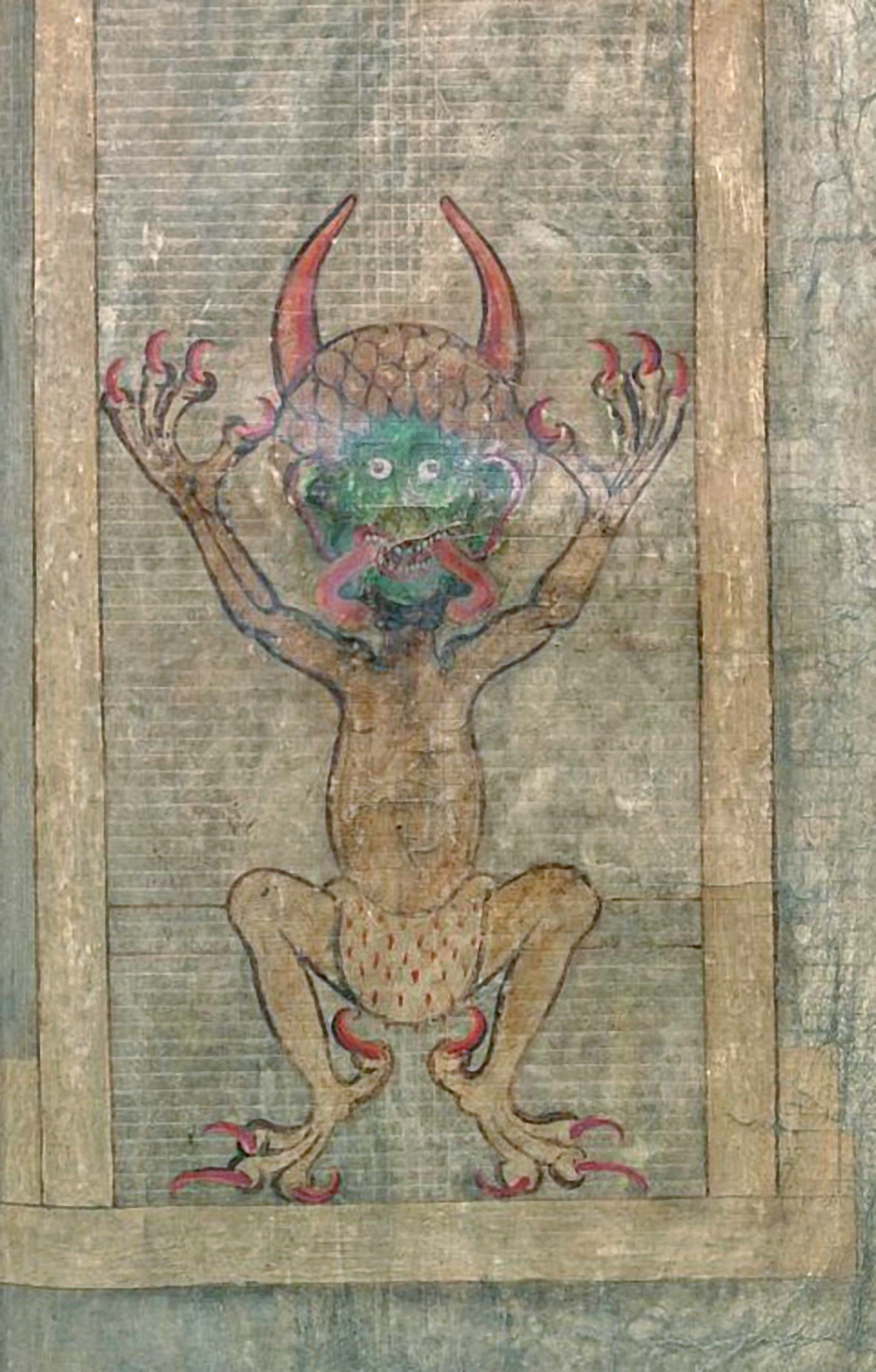
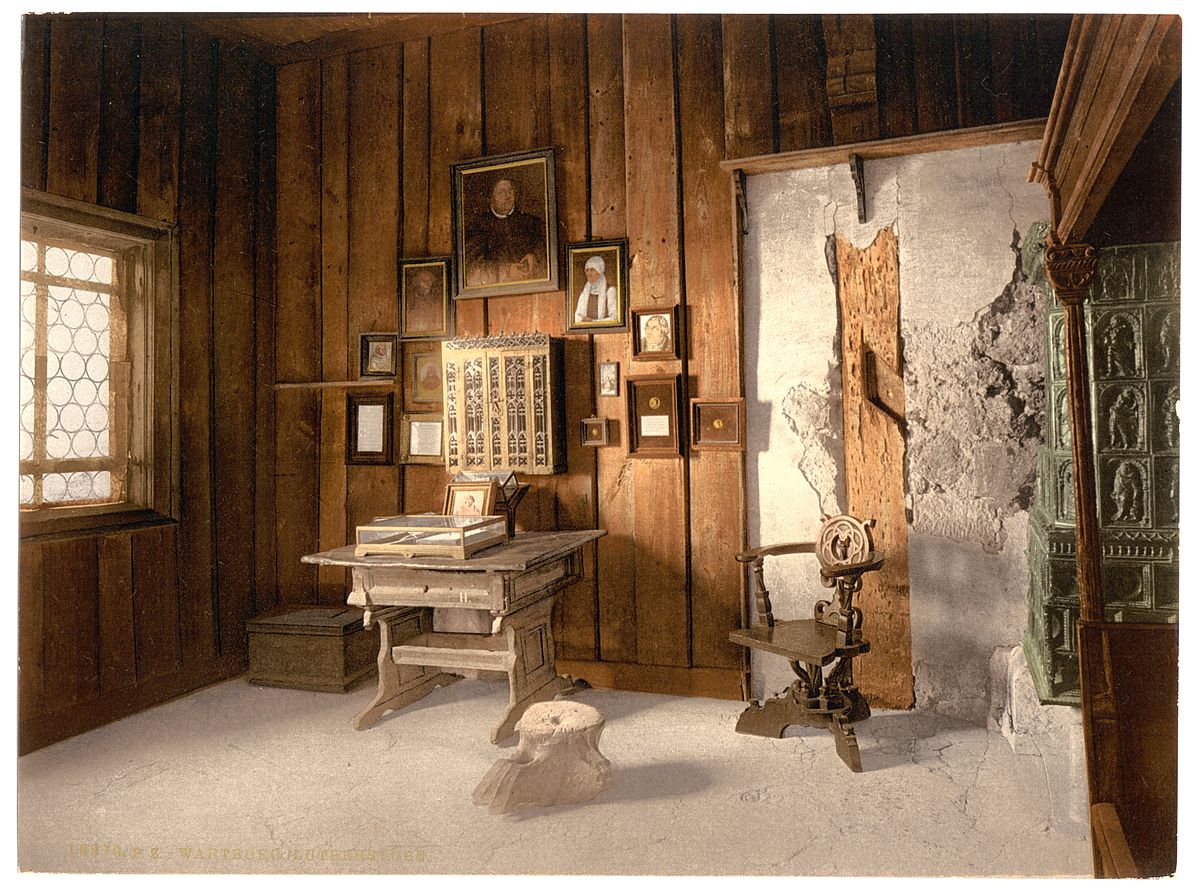
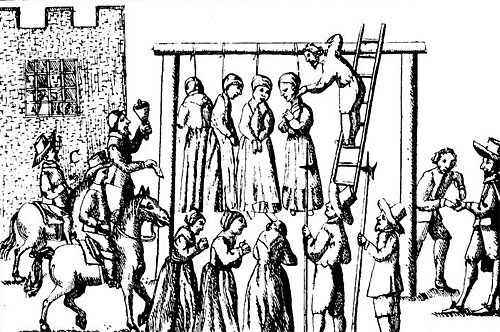
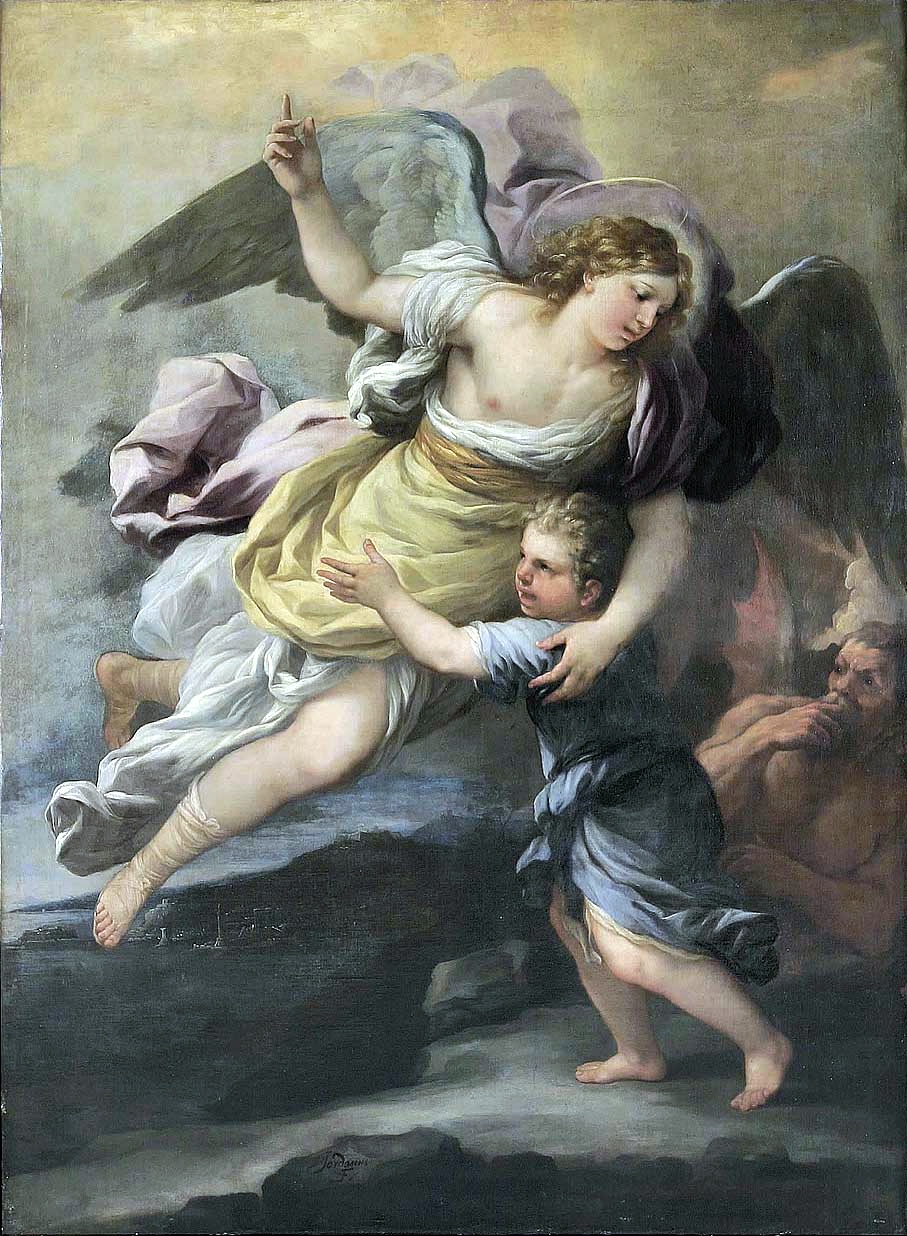
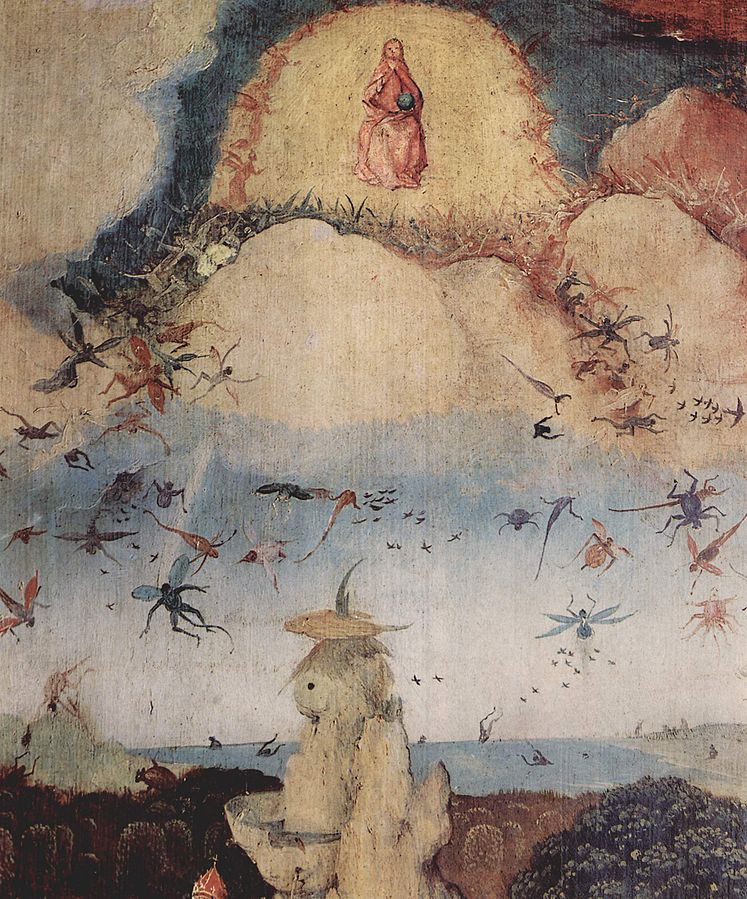

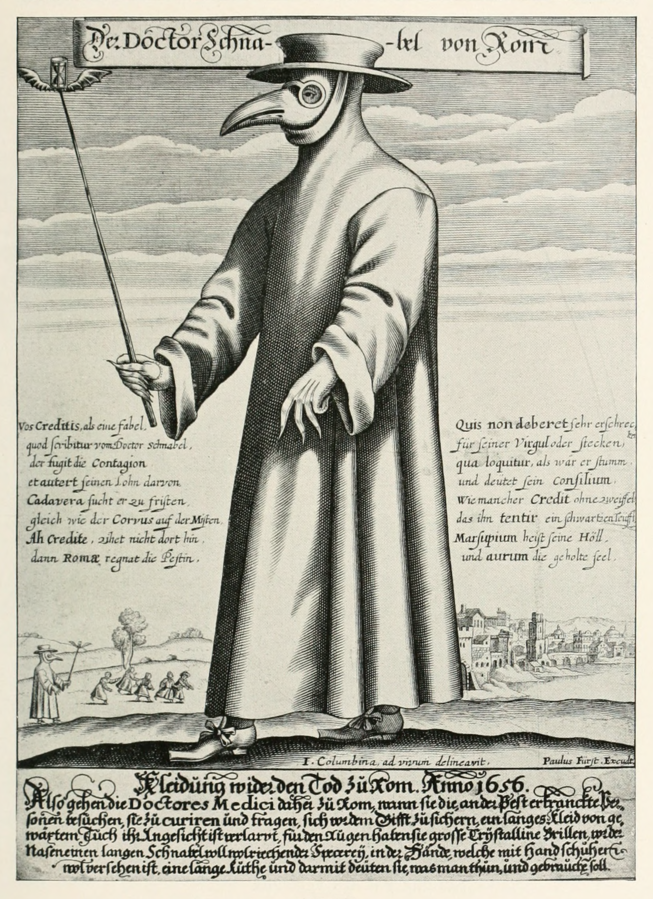
March 9th, 2016 - 11:27
I like it! I just started reading Girard’s anthropology. Look forward to seeing how his thoughts on demons and the devil align with Barth’s.
March 9th, 2016 - 11:47
Thanks Juan!
July 28th, 2025 - 17:00
Nine years late, if anybody is listening. Excellent exposition of Barth on this Red Horn and Tail subject !
I am a Barthian of nearly 40 years. Reading KB first as a philosophy major and then as a seminarian helped rescue me from the fearful and moralistic biblicism of my fundamentalist, American Evangelical youth. My esteem of Saint Barth rivals (if not at times exceeds) that of Saint Paul. Thus my private heresy confessed.
That said, I cannot shed this one nagging question.
What to do with the modern RCC exorcist whose foe(s), confessionally and experientially, is (are) identified as Satan or ontological or as the self-identified nom de guerre “Captain Howdy” from Friedkin’s infamous movie ?
A decade ago I had a brief correspondence with an American exorcist – an office of which he had not been aware nor had sought but was appointed to by his local bishop. Thus was “Father L” sent to Rome to apprentice with the late Fr. Gabriel Amorth and to learn how to preside over the RCC’s Rite of Exorcism, first formalized in the late 17th century.
There’s nothing flashy about Father L. He is self-effacing, gentle and kind. But he will tell you that he assumes the role of a serious skeptic when his services are requested, and that medical and psychological diagnoses must first be ruled out by independent practitioners. The Rite itself is profoundly christocentric, and he will tell you that he must be void of all ego when performing the Rite, that he must be absolutely obedient to the Rite and totally receptive to the guidance and power of the Triune God. After an exorcism, he might seek the mundane, earthly comfort of Dairy Queen ice cream. This guy is not a snake handler (a roommate of mine in college actually went to such a church in Western NC to witness and to report on this community), but a simple parish priest with this added office. He comes across as an introvert, bereft of self-promotion, yet with a soft spoken sense of humor. He will also tell you that the Devil is real and literally part of the 1/3 of those fallen angels from a once Primordial War in Heaven. His cosmological convictions aside, Father L comes across as sober and honest, and insists that the most important ministries of the Church are those which Jesus modeled and commanded – to love and to forgive and to heal and to feed and to give shelter … of one’s neighbors and enemies alike.
I have been re-reading III / 3, paragraph 50 and following of the Church Dogmatics and am astounded to discover that those places I enthusiastically marked 40 years ago are the same places that I would enthusiastically mark today. I understand and endorse KB’s arguments – from God and Nothingness to The Limits of Angelology. And I get the criticisms. One such comes from a Barthian at Princeton whose wishes KB had said more on the Problem of Evil and Suffering. I suspect if Karl had been allowed another 50 years to live and write that he would have, while acknowledging that the six millions words of his magnum opus were necessarily incomplete since – per his own words – all theological attempts must always be, to whatever degree, viator or wayward.
So what’s this Barthian to do with Father L’s phenomenologically encountered and ontologically witnessed Satan and His host of demons ? Can’t say as yet that I have found an answer. I will say, however, that exponential emergence of an increasingly “sentient” AI – as described by too many of its pioneers past and present – feels far more demonic and unnerving than when I first saw The Exorcist as an 18 year old.